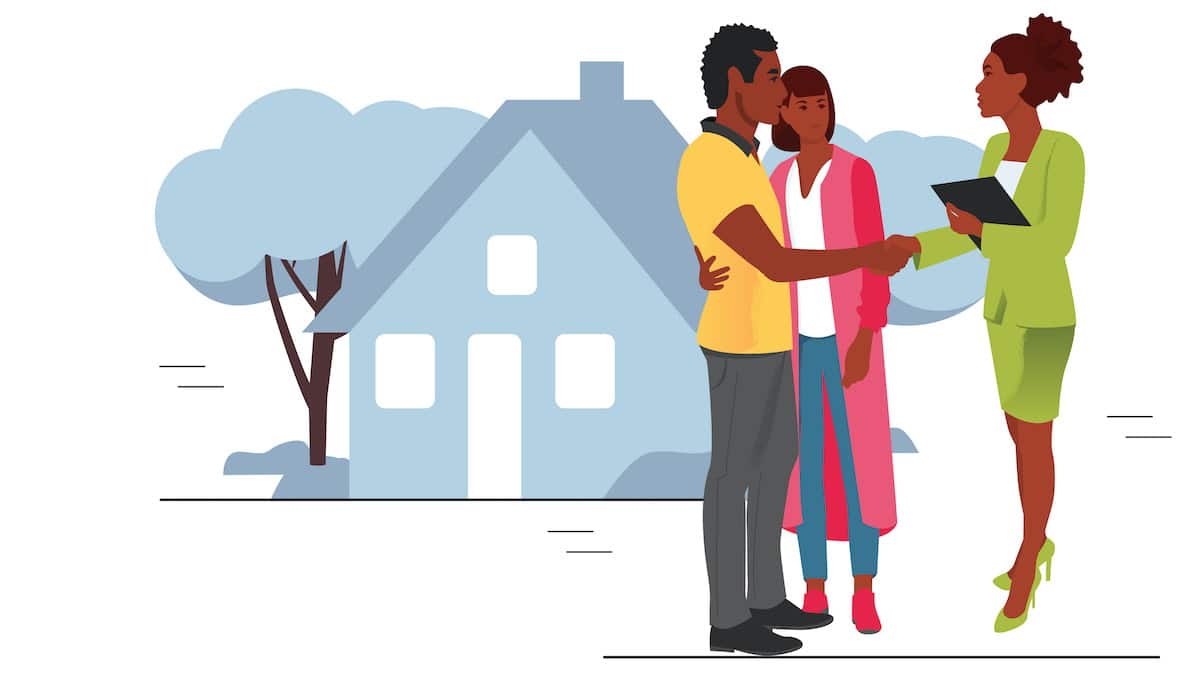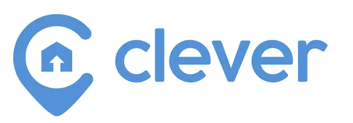
Published
Where to find the best real estate agents | How to choose the right realtor | What to look for in an agent | Realtor red flags | FAQ
Real estate agents vary greatly in knowledge, experience, personality, and commission rates. While most people commit to the first real estate agent they interview, you’ll have better results if you compare multiple options before making a decision.
You want a realtor who has experience with your area, property type, and price range — and who can offer the level of service and support you need.
Quick tip: No matter where you search for agents, you’ll want to screen them for basic qualifications. Make sure the agent you choose:
- Has at least two years of experience (or currently works with a more experienced broker)
- Closed at least 10 transactions in the last year (this indicates full-time status)
- Closed about half of their recent transactions around your price range and zip code or county
To find an agent who fits your needs, you can use an agent finding tool, ask for referrals from people you trust, or research options online.
Where to find the best real estate agents
1. Agent finding tools
Using a free agent finding tool is often the most convenient way to find a good realtor.
These companies have large networks of pre-screened real estate agents, and they send you recommendations based on your location, situation, and goals.
Once you have your agent matches, you can easily compare their credentials, schedule interviews, and weigh your options to decide the best fit. If you don’t find an agent you like, you can usually request more matches or simply walk away.
Top agent finding services
| Company | Customer Rating | Listing Fee | |
|---|---|---|---|
|
Best overall

Clever Real Estate |
5/5
3,180 total reviews
|
1.5%
Min. $3,000
|
Find Agents |

Ideal Agent |
4.9/5
7,007 total reviews
|
2%
Min. $3,000
|
Learn More |

UpNest |
4.6/5
6,811 total reviews
|
Varies by agent
Avg. 2.2%
|
Learn More |

HomeLight |
4.6/5
1,178 reviews
|
Varies (2.2% on average)
|
Learn More |
The best-rated services have strict quality standards for their agents, vetting them for experience, sales performance, past customer reviews, and ongoing service ratings. Some companies, like Clever Real Estate, even offer built-in savings, such as 1.5% listing fees for sellers (about half the typical seller’s agent commission). See which local agents offer savings.
Other well-rated agent finding tools include HomeLight, Ideal Agent, and UpNest. But their savings aren’t as big, and their service quality varies.
2. Family and friends
When a referral comes from a family member or close friend, you know you can trust the person doing the recommending — and a lot of people find an agent this way. About 47% of buyers and 41% of sellers find their agent through a friend, neighbor, or relative.
Just make sure the agent has the type of experience you’re looking for. A realtor who doesn’t typically work in your neighborhood or price range is a bad choice — even if they come highly recommended.
Also, things could get awkward if the agent is a family member or friend. In a transaction as high stakes as a home sale, you should probably hire someone you’d be comfortable firing if they don’t meet your expectations.
A final drawback is that you won’t save on realtor fees like you would with an agent finding service. If savings are important to you, you can try negotiating on your own, but you won’t have the same leverage as a company.
» LEARN: What companies offer the lowest real estate commission?
3. Loan officers
Loan officers in particular — but also builders, contractors, and property managers — tend to know a lot of local agents. They’re usually happy to provide names.
Like agents, lenders get paid only if you close on a home, so they have an incentive to refer you to an agent they trust. Plus, a good working relationship between your agent and lender can create a smoother real estate transaction for you.
However, a lender will probably only refer agents who refer clients to them, so your pool will be limited. Also, some lenders may care more about maintaining a business relationship with an agent than looking out for your best interests, so you’ll still need to vet their recommendations.
4. Online search
You can find a local agent using search engines like Google and sites like Zillow and Realtor.com. About 7% of buyers and 3% of sellers find an agent on a website on their own.
However, the sheer quantity of results can be overwhelming. And the featured results prioritize agents who pay to have a presence on the platform.
Rather than using these sites as a starting point, we recommend going online to research agents you’ve already found via better sources — like personal referrals or an agent finding tool.
How to choose the right realtor for you
- Think about what you need in an agent. Consider the areas of expertise, services, and communication style you’re looking for. Do you need a realtor who specializes in luxury homes or military moves? Do you need the agent’s services to include drone photography?
- Screen agents online. Use Zillow’s agent finder tool to check an agent’s Zillow profile. See if they list any specialties that align with your needs, recently sold homes in your area and price range, and are well-rated by customers. (Note: If you fill out the “Contact us” form, you’ll likely get calls from several agents, not just the one you intended. Also be aware that the Premier Agent designation is something agents pay for.) You can also check an agent’s online presence and additional reviews via a quick Google search for “[name] real estate agent.”
- Pick at least 2–3 agents to interview. While research is a good starting point, you won’t know whether a real estate agent is actually a good fit until you talk to them. Most people (82% of sellers and 73% of buyers) interview only one agent before choosing one, but you’re more likely to find the right agent if you compare your options.
You’ll need to consider different factors and ask the agents different questions depending on whether you’re selling or buying.
» MORE: How to Choose a Realtor When Selling | How to Choose a Realtor for Buying
What qualities to look for in a real estate agent
Buyers and sellers tend to prioritize trustworthiness, reputation, experience, and personality when looking for an agent.
You can quickly find agents with these qualities by using a free agent finding tool.
Companies that provide these tools are experts at connecting people with vetted local agents. They can match you with multiple realtors who have experience relevant to your transaction, and you can interview them to see if their personality clicks with yours.
Look for the following qualities when you screen and interview agents to ensure you find a good fit.
1. Solid real estate experience
Look for agents who have at least three years of experience as a licensed agent. Chances are they’ve handled a variety of transactions and know how to navigate challenges.
You can see how many years of experience a realtor has by looking at their agent profile on Zillow. You can also look up a realtor’s license number in the Arello database to see how long they’ve held it and whether it’s still active.
2. Full-time status
A full-time agent may oversee 30 or more transactions a year, while a part-time agent may only close one or two.
We recommend working with an agent who has facilitated at least 12 home sales within the past 12 months. They’re more likely to be up-to-date on local market dynamics and have a strong local network.
The most accurate way to check out a realtor’s sales history is to ask them for it directly. They should be able to send you links to recent sales or provide a printout from their local MLS.
Active listings are also a good sign. You should be able to find these on an agent’s personal website or Zillow profile.
3. Recent similar sales
Your agent should have recent experience dealing with your target area, property type, and price point.
Look for agents who have closed at least two to three sales in the neighborhood you’re aiming to buy or sell in, preferably within the last one to two months.
Agents working primarily in your area know how to accurately value those homes.
4. Relevant expertise and certifications
Some realtors carve out niches in a particular area of real estate, such as investment properties, first-time home buying, foreclosures, or military relocations. Look for agents with a strong track record of helping clients in your situation.
You can also look for matching certifications. Common realtor certifications you might come across include:
- Accredited Buyer’s Representative (ABR): ABRs are certified to help clients navigate all aspects of the home-buying process.
- Certified Residential Specialist (CRS): A CRS designation implies a high level of achievement as a listing agent. To be eligible, an agent needs to have closed dozens of real estate transactions and handled several million dollars worth of real estate sales over multiple years.
- Certified Relocation Professional (CRP): A CRP has experience helping home buyers relocate. The certification includes exams on aspects of relocation, like tax and legal issues.
- Seniors Real Estate Specialist (SRES): An SRES has additional training and expertise in helping clients ages 50 and older navigate situations like downsizing, transitioning to a retirement community, or applying for a reverse mortgage.
If you’re not sure where to find an agent with the right expertise, contact our free agent finding service to let us know what you’re looking for. Chances are we have an agent in our network we can recommend — or can quickly source one for you.
5. Good communication
Top agents are friendly and conversational. But they also take the time to learn about your specific needs, and they genuinely care about helping you achieve your goals.
You can tell a realtor is a strong communicator if they ask about and use your preferred method of communication, keep the focus on you, set realistic expectations, and back up their claims with data and examples.
Good agents usually follow up with you after your initial phone call or interview to see if you have any other questions or concerns.
6. Local market knowledge
Real estate is local, so it’s important to hire an agent who knows your specific market.
Your agent should know how quickly homes are selling in a given neighborhood, whether the current climate favors buyers or sellers, how to price a home competitively (or tell if a home you’re interested in is over- or underpriced), and what challenges you may face as a buyer or seller given current market conditions.
How can you tell if an agent knows their stuff? They can answer your questions, and they back up their assertions with data and real-life examples. Inexperienced agents will struggle to come up with answers.
7. Solid network
Experienced agents are well-connected within their industry. Their contacts include loan officers, contractors, title companies, home inspectors, plumbers, electricians, and more. A good realtor should be able to leverage their extensive network to help a deal move quickly.
8. Honesty and transparency
Buying or selling a home is a high-stakes decision, and you need an agent who has your best interests — and not just their commission — in mind.
To establish trust, your agent should set clear expectations and disclosures around:
- Their commission: A good agent will disclose their commission rate and explain what it covers. Realtor commission is negotiable, and they should be open to having that conversation.
- Market realities: No agent can guarantee that you’ll get a sky-high price for your home or have a stress-free transaction. Good agents set realistic expectations and don’t make promises they can’t keep.
- Their experience: Your agent should accurately represent their experience and how many homes they’ve sold. Their experience should be apparent in the questions they ask and how they educate you on buying or selling and the local market.
What makes a good buyer’s agent?
A great buyer’s agent will be your guide and confidant through the entire home-buying process.
Apart from the basics, like showing you homes, they’ll structure and negotiate offers to make you stand out in a highly competitive market. They’ll also walk you through the forms, disclosures, and legal documents required to close.
A good buyer’s agent will also be a reliable source of local knowledge. They’ll answer any questions you have about utilities, zoning rules, area schools, local taxes, homeowner’s association fees, and more.
» MORE: How to Choose a Realtor for Buying
What makes a good seller’s agent?
A good seller’s agent (also called a listing agent) will know how to sell properties in various market conditions, and they’ll point out potential roadblocks ahead of time.
Before listing your home, a strong seller’s agent will run a comparative market analysis (CMA) to determine a fair list price. They’ll advise you on what repairs will have the greatest return on investment and where to hold off. They’ll also have a solid game plan for marketing your home to buyers.
Finally, a good listing agent can explain how they screen offers and vet each buyer’s financing. They’ll know how to negotiate deals based on current market conditions and what’s important to you and the buyer.
» MORE: How to Choose a Realtor when Selling
Realtor red flags
How to find a real estate agent: FAQ
How do I find a good real estate agent?
The most straightforward way to find a good real estate agent is to use a free agent finding tool. The service will learn about your situation and then connect you with top local agents in its network. You can interview multiple agents until you find the best fit, or you can walk away. Top matching services also offer savings on realtor commissions.
Should I look for a real estate agent or realtor or broker?
A real estate agent is any person licensed to help people buy or sell real estate, while a realtor is an agent who is also a member of the National Association of Realtors (NAR). Realtors are bound by the NAR Code of Ethics, but they aren’t necessarily better at their jobs than non-member agents. A real estate broker holds a more advanced license and is qualified to supervise other agents. Learn more about the difference between real estate agents, realtors, and brokers.
What does a real estate agent do?
A good real estate agent will coach you through all aspects of a real estate transaction. When acting as a buyer's agent, a realtor will help you find homes for sale, make offers, and negotiate terms. When acting as a seller's agent (also called a listing agent), a realtor will help you list and market your home to buyers. Find out more about what real estate agents do.
Does it matter what real estate agent you use?
Yes, it matters what real estate agent you use. Agents have varying degrees of knowledge, skill, and experience. A part-time agent may stumble through a home sale without offering much help. A top agent will use their expertise to help you secure a successful sale or purchase. Here’s what to look for in an agent.
Do I need a realtor to buy a house?
Having a good buyer’s agent by your side can make a huge difference, especially if you’re a first-time home buyer or you’re planning to move to a new area. And since the home seller pays the buyer's agent commission, you don’t have to pay out of pocket to work with one. Here’s how to make sure your agent is a good fit.
What is the cheapest real estate commission?
While most real estate agents collect 2.5–3% commission, some brokerages and agent finding tools offer discounted rates as low as 1.5% — without sacrificing service. Find out which reputable companies offer the lowest commission rates.
Why you should trust us
Real Estate Witch’s mission is to provide accurate, actionable, and practical information you can use to make better decisions on your real estate journey.
Related links
What Companies Offer the Lowest Real Estate Commission Fees? Working with a low commission real estate agent is one of the best ways to save money when selling a home. Here are the ones that provide the best savings, service, and overall value.
The Best Questions to Ask a Realtor: Before hiring a realtor, you should interview them to find out if they’re legitimate. We talked to experts to uncover the best questions to ask your realtor before you commit to working with them.
How to Negotiate Your Realtor Commission: Learn how to negotiate commissions with realtors and save money on your next real estate transaction.
Do I Need a Real Estate Agent? Though you’re not required to work with an agent, most buyers and sellers find them valuable. Here’s why.


Jeff Carbine says
I loved it when you said that agent matching services are the fastest, easiest way to connect with local agents. We are planning to move to a new house before the end of the year. We are looking for the best real estate agency in town. We will also ask for referrals from friends.